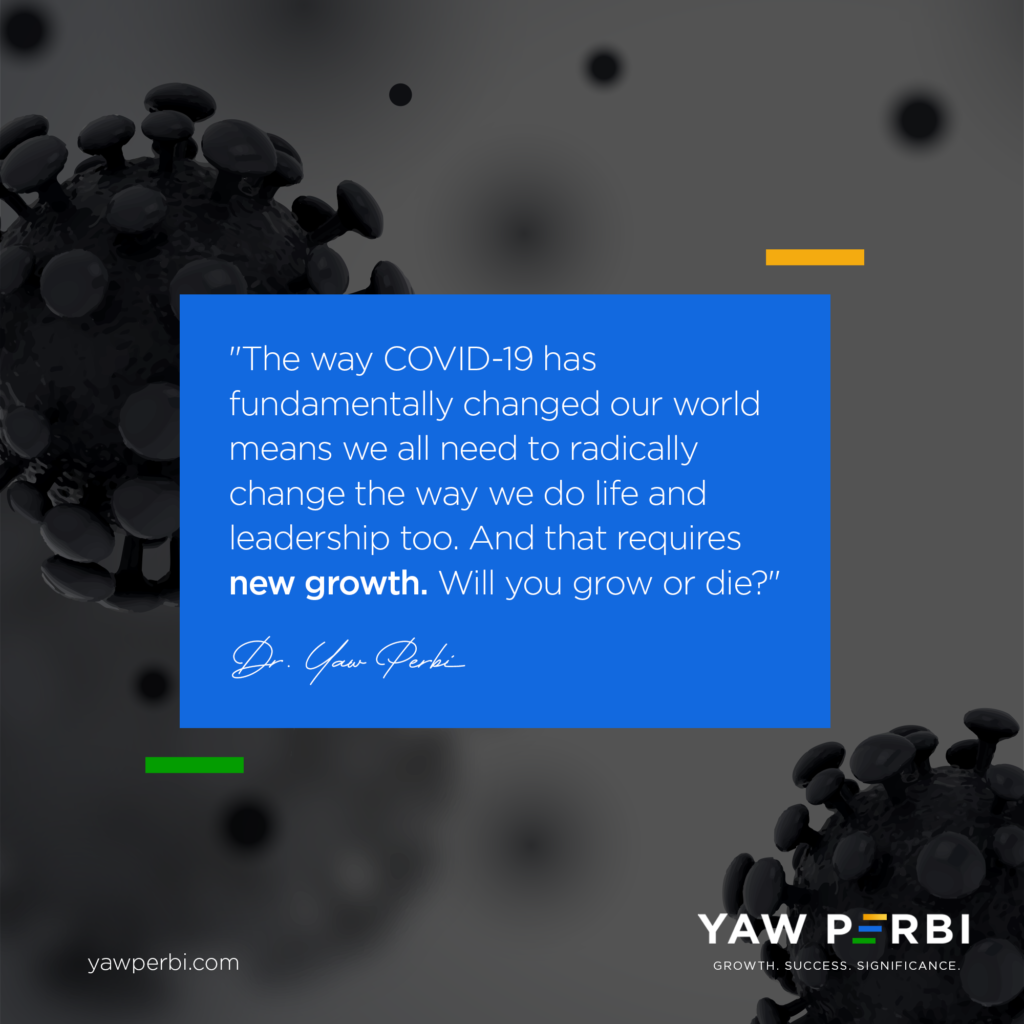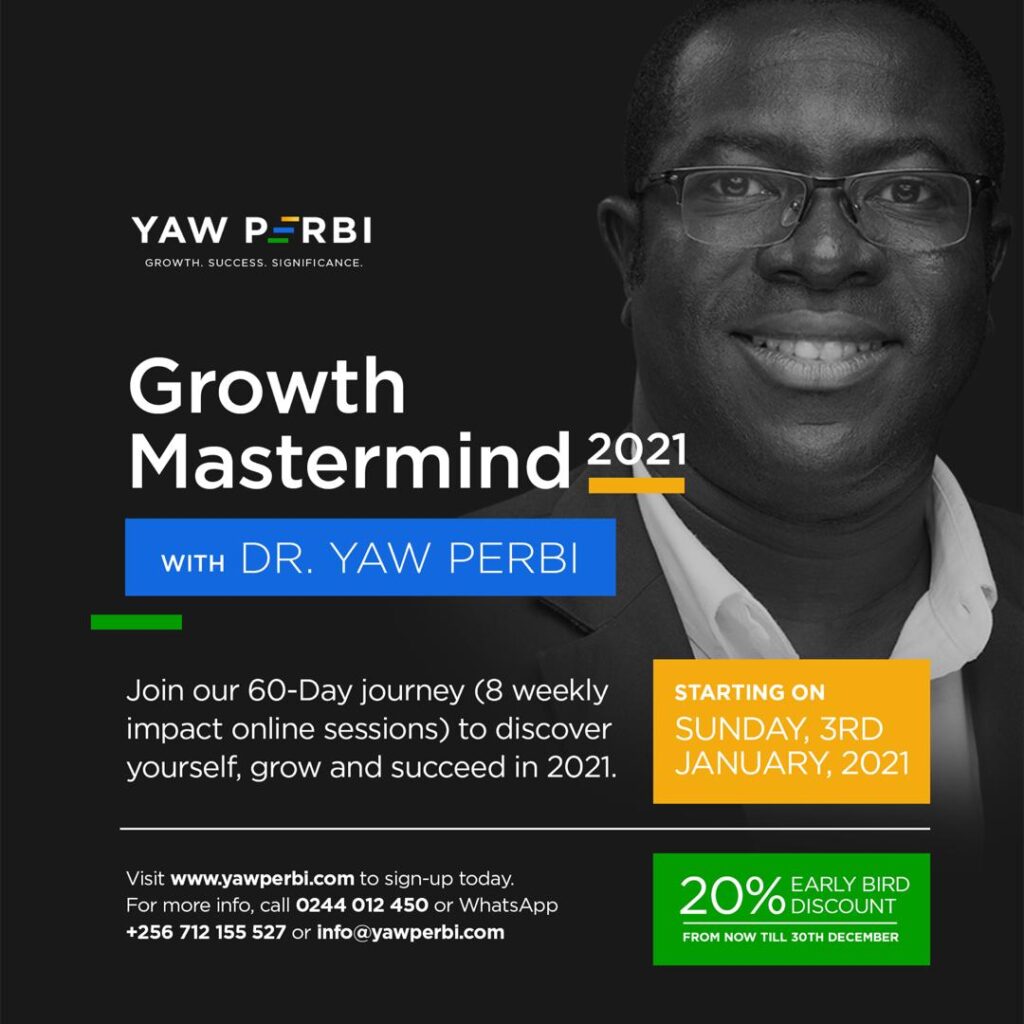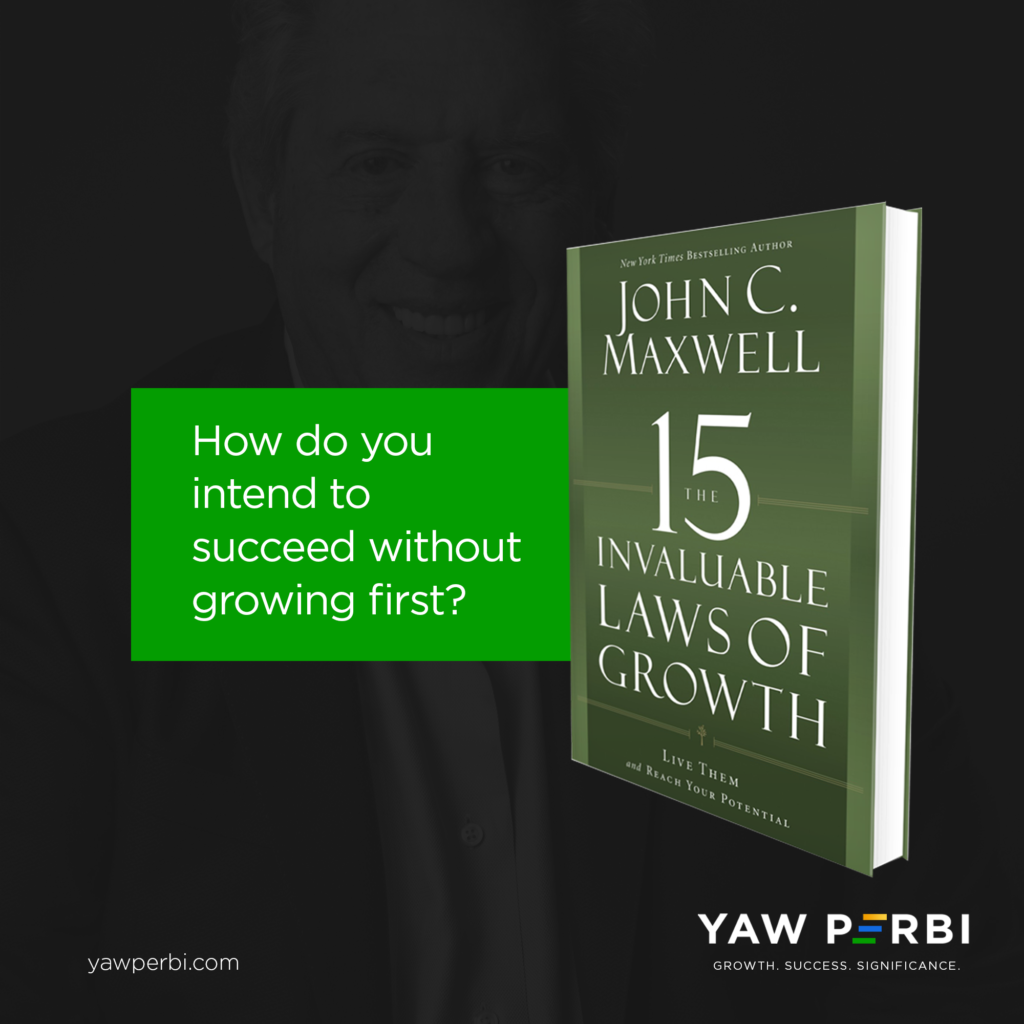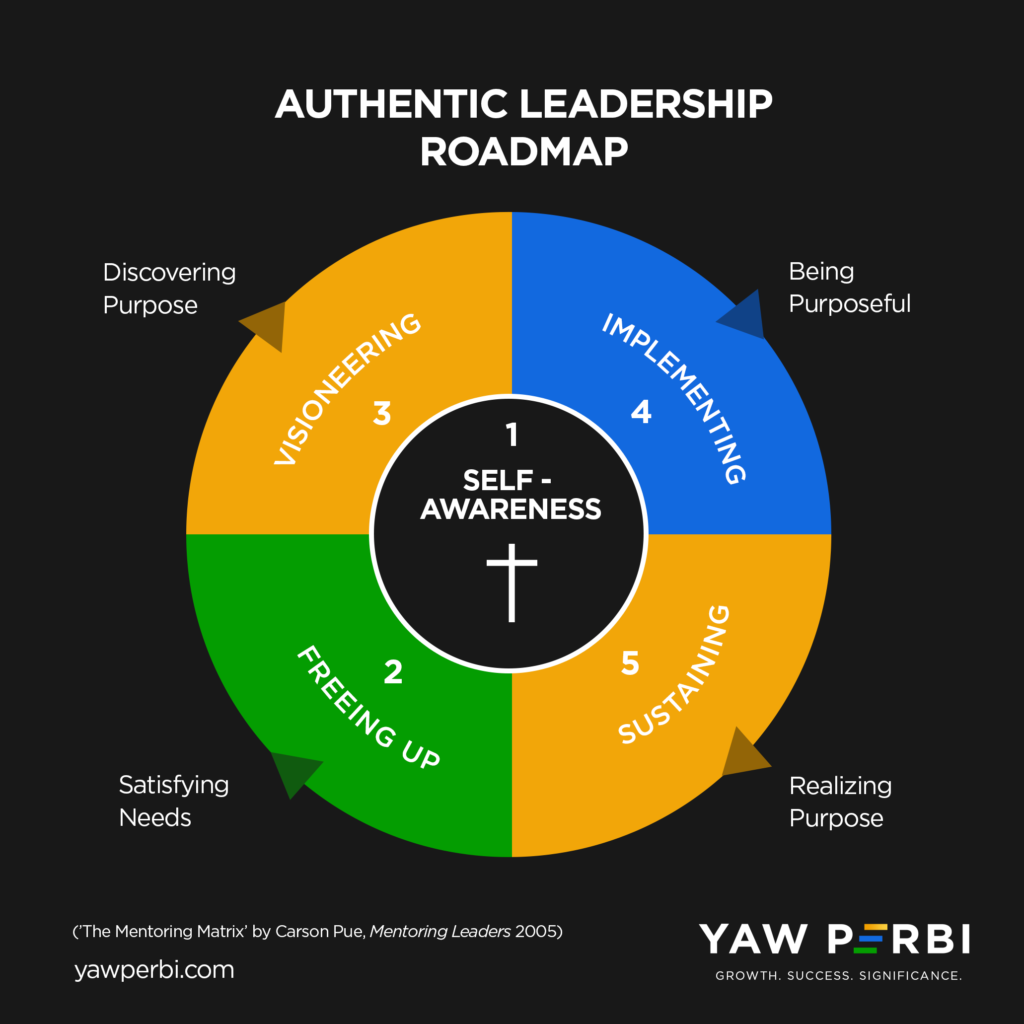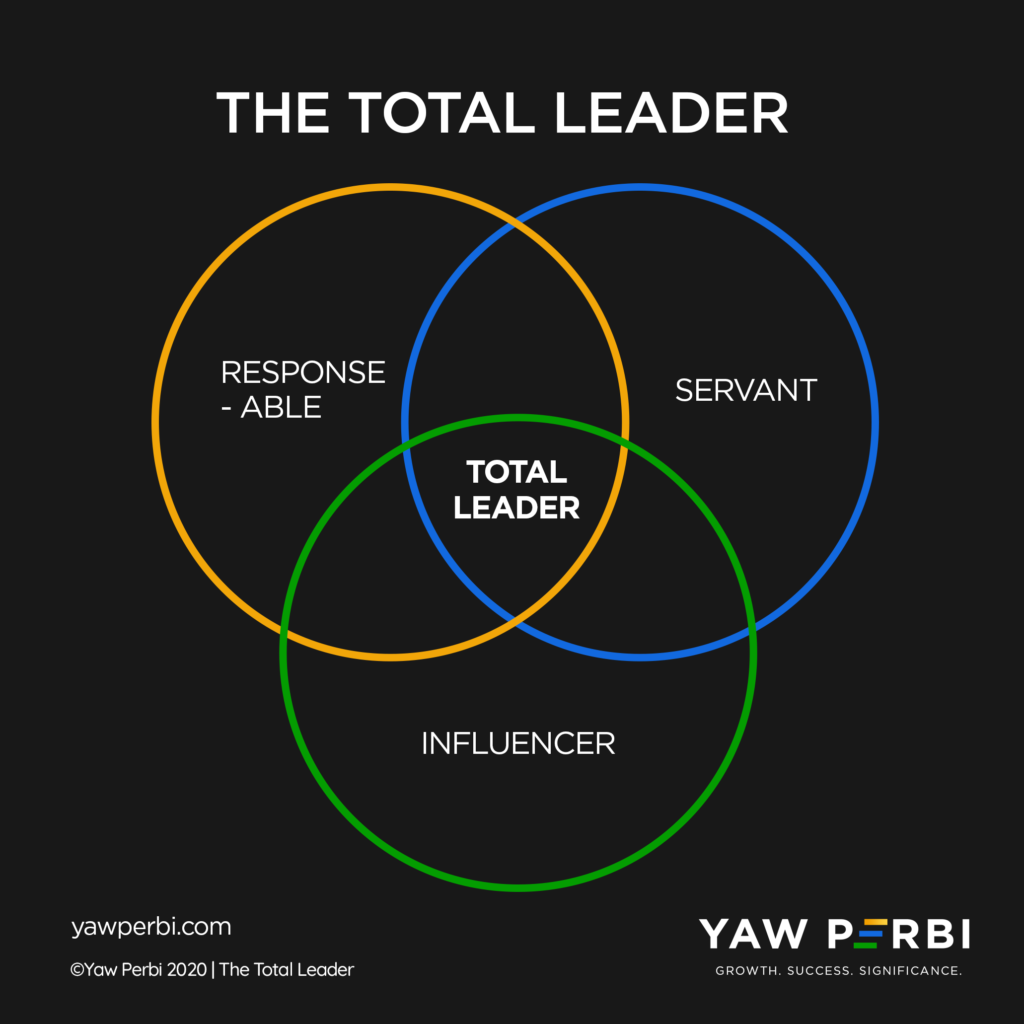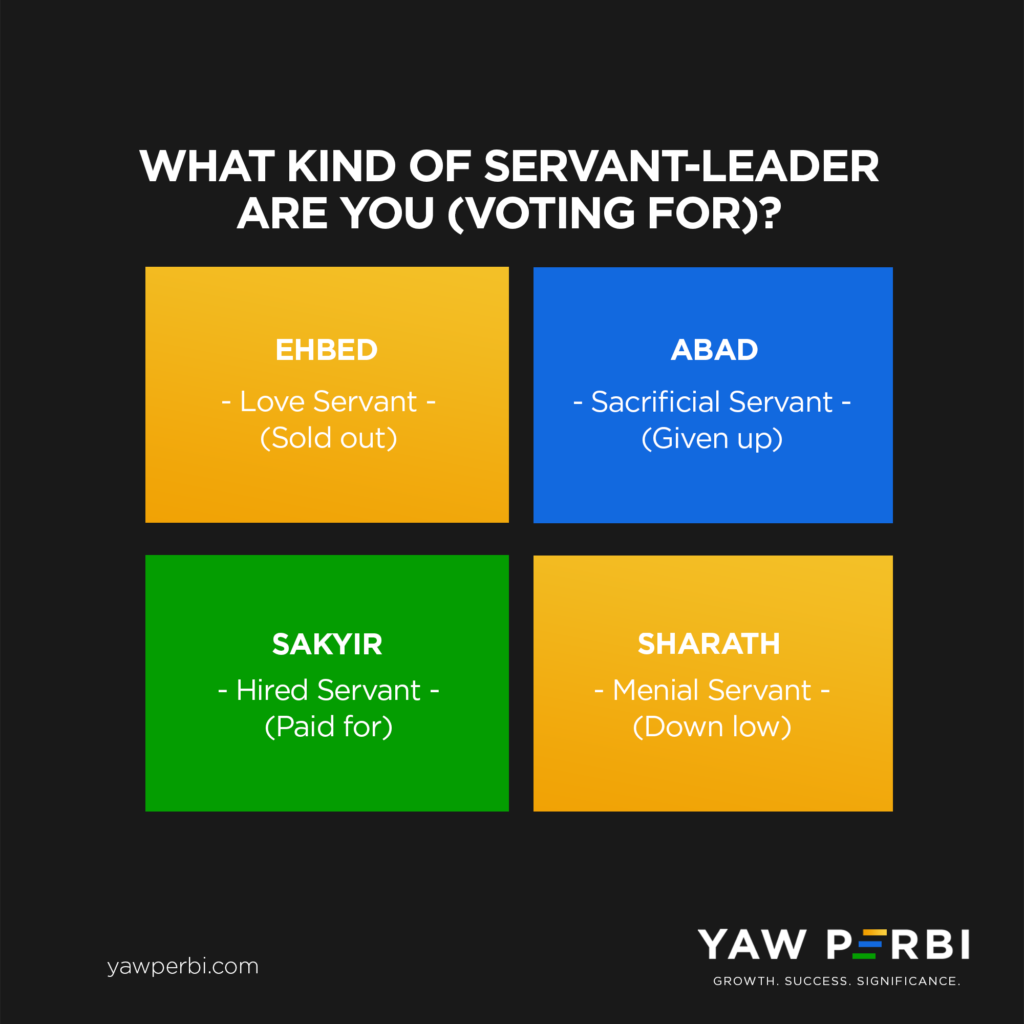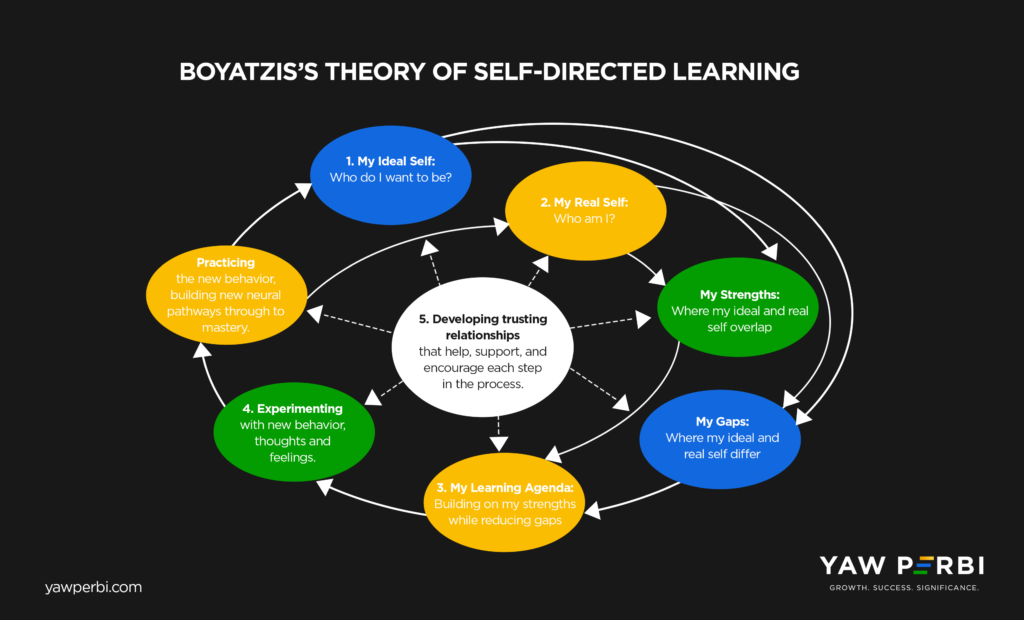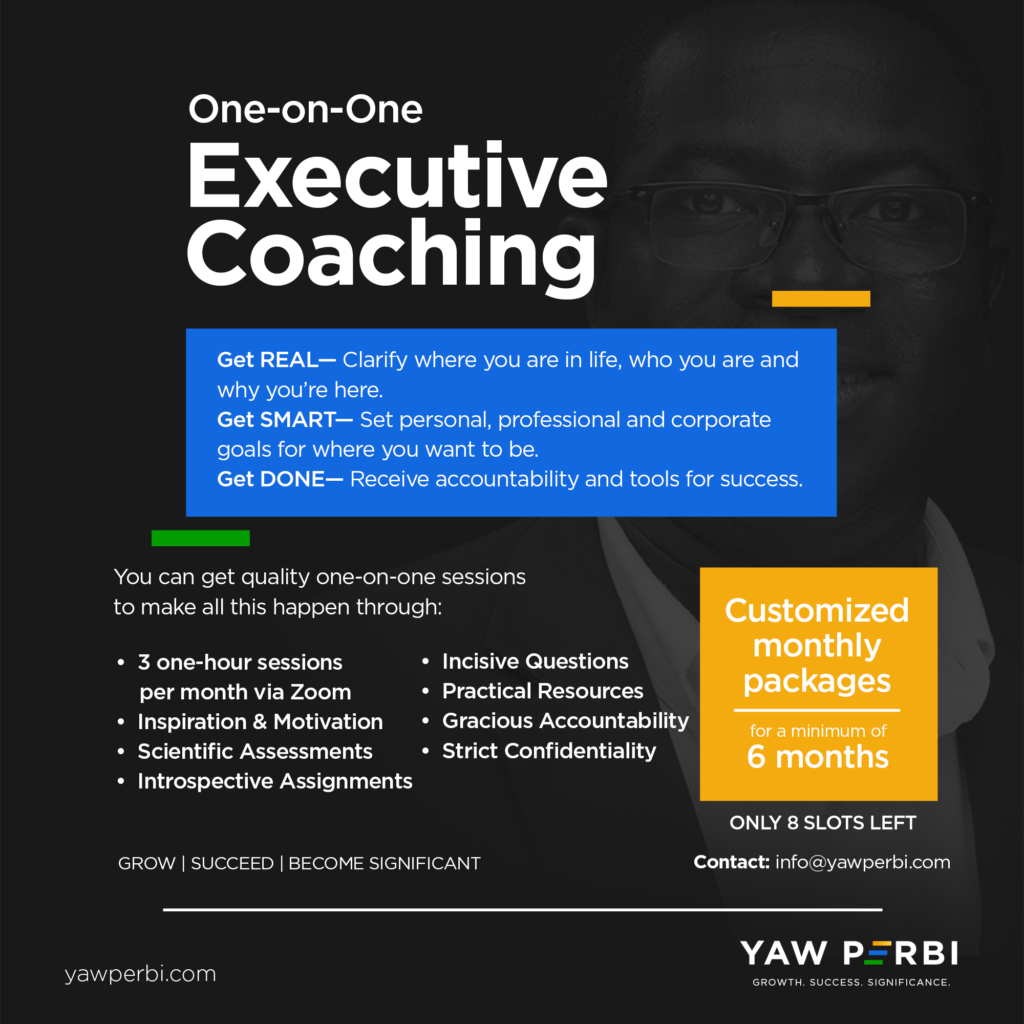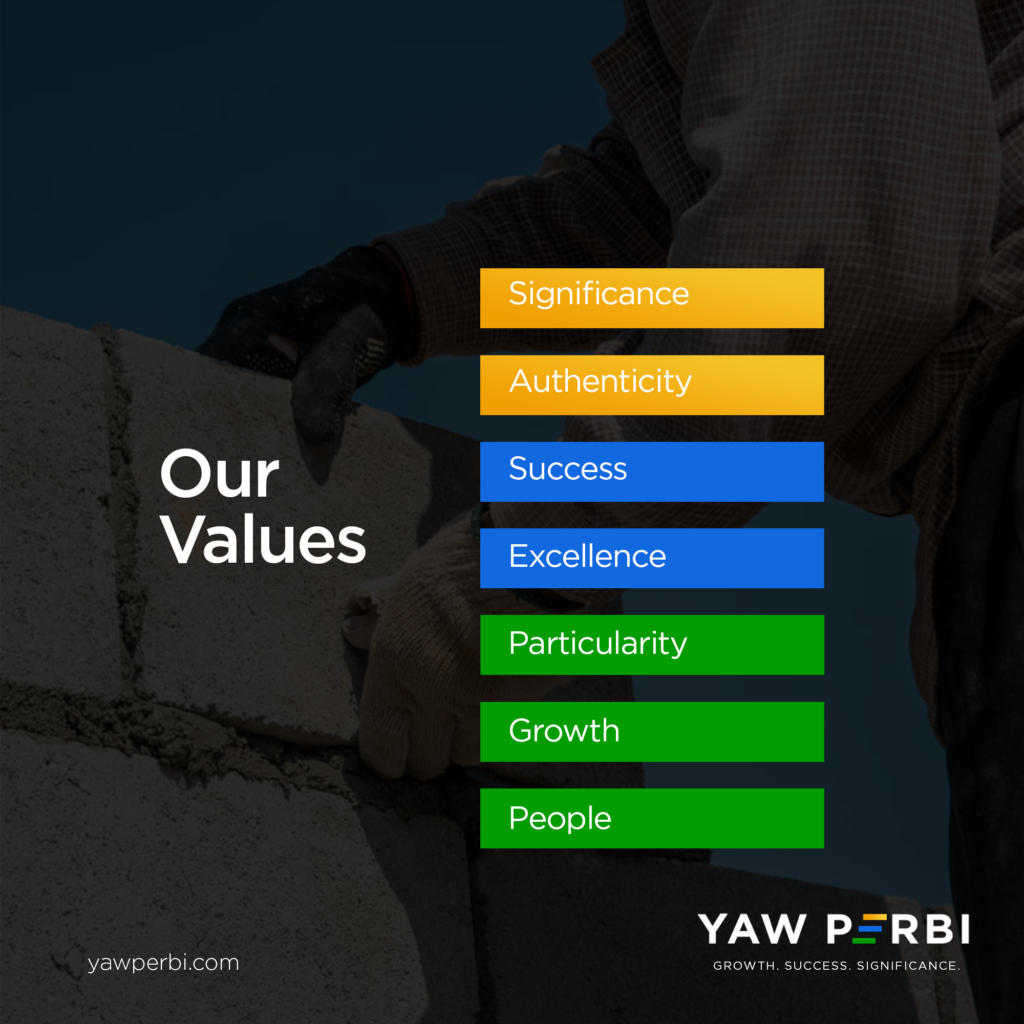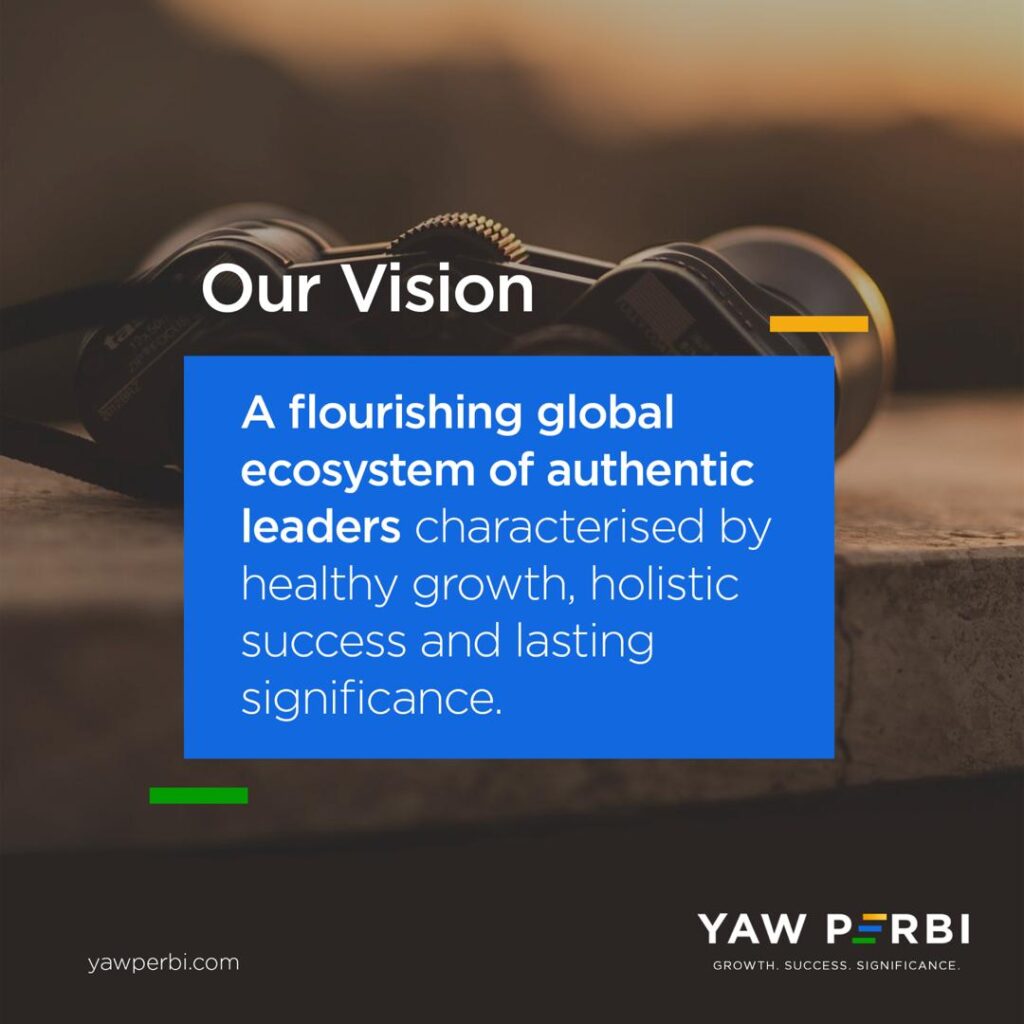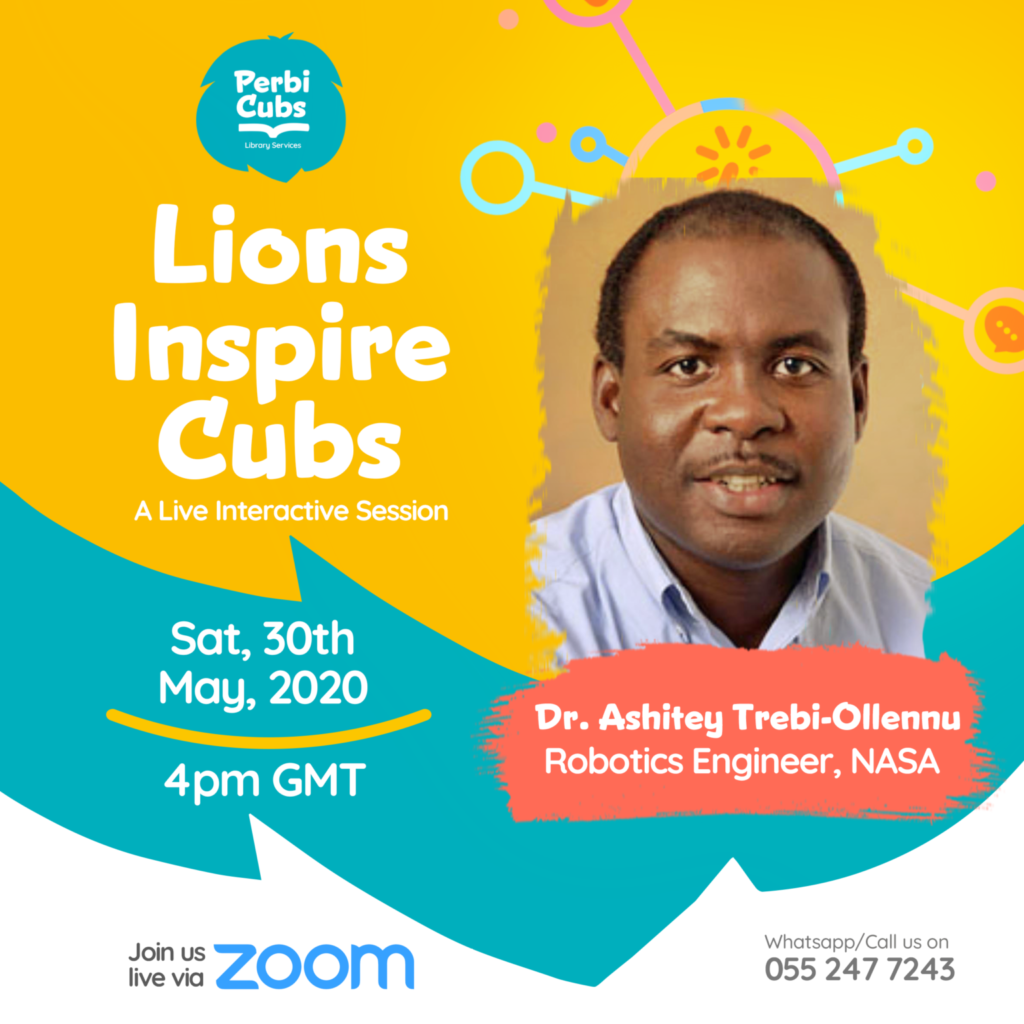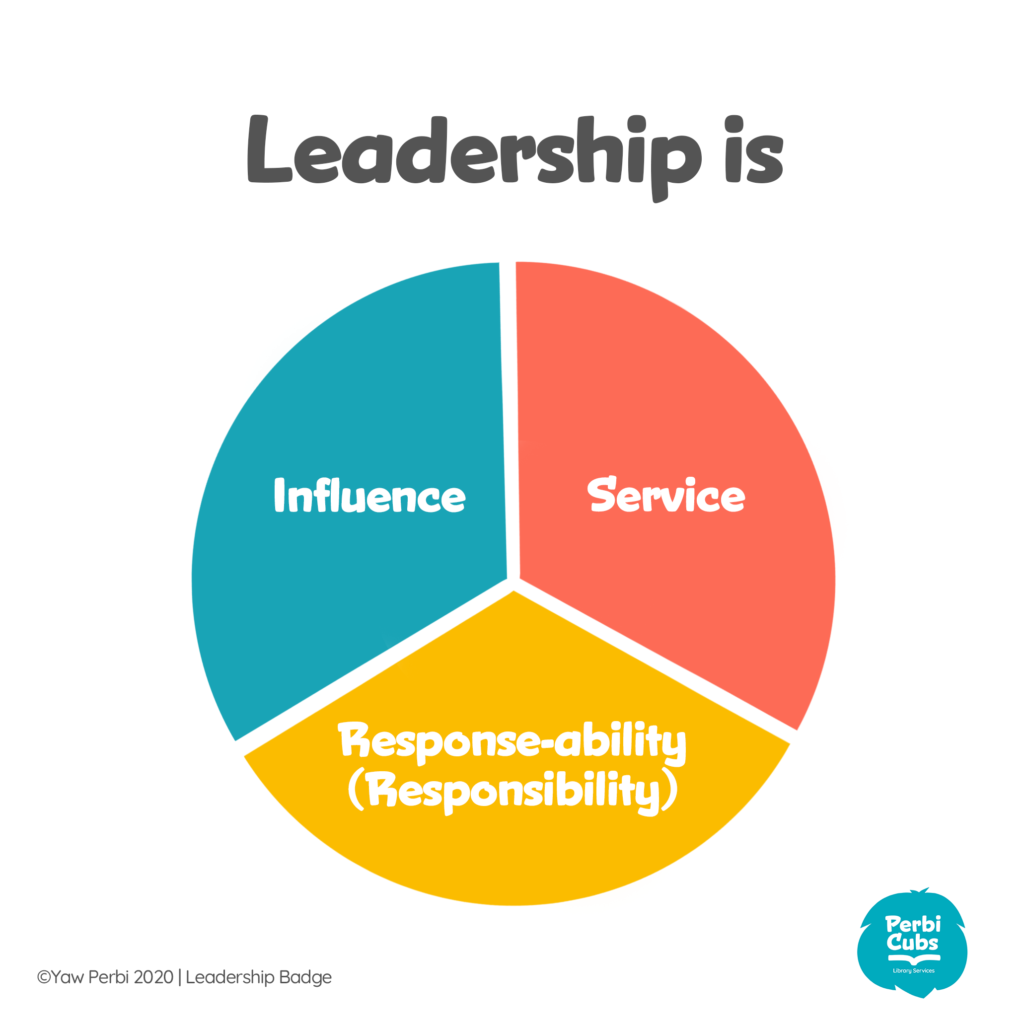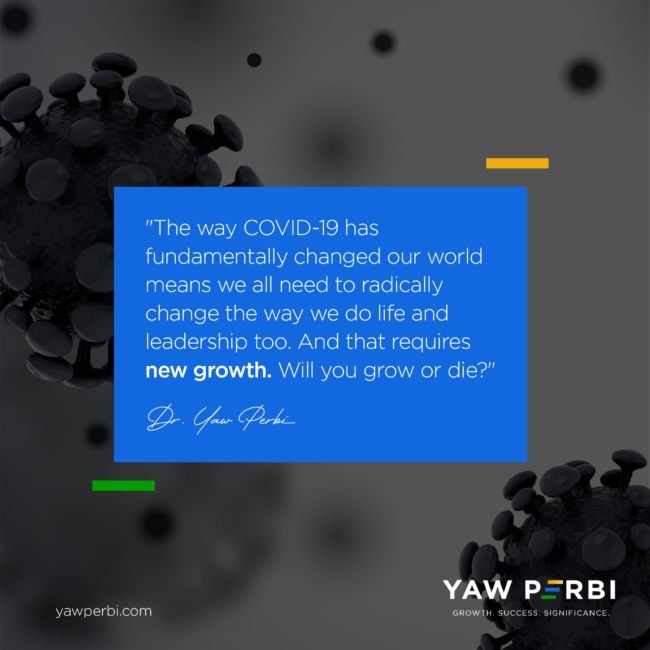
Festival of Nine Lessons & Corona
“The novel coronavirus is not just something for leaders to ”get through” for a few days or weeks. Instead, we need to treat Covid-19 as an economic and cultural blizzard, winter, and beginning of a “little ice age”—a once-in-a-lifetime change that is likely to affect our lives and organizations for years,” says Andy Crouch et al. I concur.
Just before Christmas 2020 my lawyer-banker friend and fellow John Maxwell Certified Trainer/Coach, Samuel Anim Esq., asked that I join him do an autopsy of the pandemic year 2020 live on Facebook/Youtube to draw leadership lessons. I was honoured and humbled. Honoured because it is a privilege to offer thought leadership and there is a myriad of leadership experts to choose from. I was humbled because not only do I not know all the lessons from Covid-19, I am still evaluating and learning from what I would perhaps call “the strangest year of my life.”
Nevertheless I managed to throw a few of my reflections together and gave it a funny title. Since around that time of the year there is the traditional Festival of Nine Lessons & Carols I thought of making this a Festival of Nine Lessons & Corona. Certainly there are more than nine leadership lessons from this Coronavirus pandemic year but here are some:
1. EMBRACE PARADOX
Perhaps no one and nothing captures the paradox of 2020 like Charles Dickens and his classic phrase, “It was the best of times, it was the worst of times” (from A Tale of Two Cities). This same 2020 year, over 1.67 million have died and 42.6 million have recovered. You may have lost someone to COVID-19 but you are alive. I’ve been stuck at home but I’ve had the longest unbroken quality bonding time with my family ever! We lost our family’s physical library services business but gained online business five times the physical capacity. Whole old industries, like aviation, have been decimated but whole new industries have emerged and are booming like Zoom. 2020 has been catastrophic yet catalytic.
Welcome to leadership. Embrace paradox. Think of the paradox of a servant leader, as a prime example of leadership paradox. True leadership is almost always straddling two seemingly opposing worlds, something Bob Fryling describes as “the leadership ellipse” because an ellipse “is defined by two distinctly different focal points that are of equal importance. One point is not inferior to the other, and both are needed if there is to be an ellipse.” I previously blogged about this in more detail here.
“It was the best of times, it was the worst of times, it was the age of wisdom, it was the age of foolishness, it was the epoch of belief, it was the epoch of incredulity, it was the season of light, it was the season of darkness, it was the spring of hope, it was the winter of despair.” ― Charles Dickens, ‘A Tale of Two Cities’
If leadership has always been about managing the tension of tasks or people, money or mission, the present or the future, inner spiritual longings and the outward needs of the group we lead, being and doing, community and cause, truth-telling and putting the right spin on things, to live in the world without being of the world, to be faithful or fruitful etc. then all of these have been put on steroids in a para and post-Covid world.
I have said before and I repeat: “the degree to which one is able to be comfortable with and live, love and lead well in the tension of this and that, yin and yang, determines their ultimate leadership success or otherwise. From my little experience and research, the best leaders in the world are those who are not only able to get comfortable with being uncomfortable living in such tensions but mastered the art of dextrously handling both well.” The post-Covid world leaves us no choice. Embrace paradox or die.
2. MAINTAIN THE MISSION, MUTATE THE MEANS
You and yours don’t want to end up like the Choluteca Bridge in Honduras. It was initially built in 1930 and reconstructed in 1996 to withstand tough weather conditions, including hurricanes. Well, two years later, in 1998, the bridge did prove its mettle, withstanding the category five storm, Hurricane Mitch, that devastated Honduras. Buildings were destroyed and roads wiped out but the bridge survived in near perfect condition. The only problem was that there were no roads for it to connect to anymore (roads wiped out at both ends) and the strong winds of the hurricane had caused the river to carve out an entirely new path that no longer ran under the bridge!
Think about it: a bridge connecting to nowhere and no one; and over nothing! If a bridge is no longer a way or a means to a desired end, then what is it? Similarly, if your pre-Covid means are no longer effective post-Covid as ways to deliver your mission, then of what use are they?
You certainly don’t want to lose sight of your vision or your grip on your mission but when it comes to your strategies, your ways and means to accomplish your mission, you don’t ever want to be dogmatic about that. In matters of mission, be as solid as a rock; but regarding the means flow like a river.
THE OTHER SEVEN LESSONS
3. Global community is the real deal context of leadership
4. Capitalize on era of Business without Borders
5. Heed the Harm to our House (Earth)
6. Inequities, Inequalities, Integrity-lessness will be exposed with time
7. Reflective lifestyle is the must-have rhythm of leadership
8. Become and raise agile “VUCA Prime” Leaders (VUCA is an acronym for Volatile Uncertain Complex Ambiguous)
9. HOPE is the real vaccine.
For further details of each lesson, watch the full video here.
CONCLUSION
If there is any one of these nine Covid-19 life and leadership lessons you need to grow in for a more successful 2021 you’re in good company. Join me. Come to the growth table. Join the 15 Invaluable Laws of Growth January journey in the form of a mastermind group of just 15 high level executives. Register right now here. The way COVID-19 has fundamentally changed our world means we all need to radically change the way we do life and leadership too. And that requires new growth. Will you grow or die?
Post Script
Earlier in the last quarter of the year I shared my faith-based Covid-19 reflections vis-a-vis Christian mission with pastors and church leaders here.
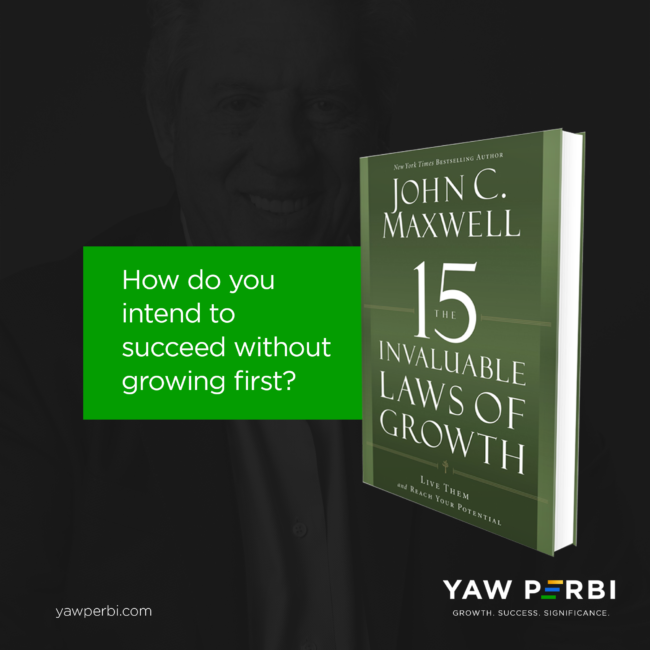
THE THING ABOUT LAWS | The ’15 Invaluable Laws of Growth’ Mastermind
Yes it’s a free world and humans are at liberty to do pretty much whatever we like. Or… well… maybe that’s not entirely accurate. There are laws or principles that have been here before us which we defy to our own hurt, irrespective of how noble our intentions might be. For example, some people intend to succeed in life without first growing. Forget it. It’s a law.
OF BATTLESHIPS AND LIGHTHOUSES
My all-time favourite story to illustrate the fact that there are fixed laws that govern life in our universe and that they don’t (and won’t) change to suit us but rather we ought to alter our lives to conform to them is this one told by Frank Koch, an experienced man of the seas, in Proceedings:
Two battleships assigned to the training squadron had been at sea on maneuvers in heavy weather for several days. I was serving on the lead battleship and was on watch on the bridge as night fell.
The visibility was poor with patchy fog, so the captain remained on the bridge keeping an eye on all activities.
Shortly after dark, the lookout on the wing of the bridge reported, “Light, bearing on the starboard bow.”
“Is it steady or moving astern,” the captain called out.
Lookout replied, “Steady, captain,” which meant we were on a dangerous collision course with that ship.
The captain then called to the signalman, “Signal that ship. We are on a collision course, advise you change core 20 degrees.
Back came the signal, “Advisable for you to change course 20 degrees.”
The captain said, “Send, I’m a captain, change course 20 degrees.”
“I’m a seaman second class,” came the reply. “You had better change course 20 degrees.”
By that time, the captain was furious. He spat out, “Send, I’m a battleship. Change course 20 degrees.”
Back came the flashing light, “I’m a lighthouse.” We changed course.
Just like the lighthouse, the laws/principles that run the universe are fixed and provide us a framework to live successful lives and irrespective of our perceptions, status in life, ambitions or raw muscle effort (like the battleship captain) they won’t, indeed they cannot, change course in our favour, we have to.
WHAT THESE LAWS ARE/AREN’T
Principles are fundamental, universal laws and timeless truths that govern everything in this universe. The thing is that the physical principles like the Law of Gravity are more easily appreciated than the ones our five senses can’t readily observe the consequences of. The laws of success, relationships, finances, spirituality etc. tend to be more difficult for us to wrap our heads and heart around. Even the Law of Sowing and Reaping (or Law of Cause and Effect), that whatever a person sows, that also will they reap, is very much appreciated when it comes to agriculture, yet somehow we miss it when it comes to the good/evil we do to others or even how this law plays out in our financial lives.
Yet these laws of life are “practical realities.” And the other thing is they’re not partial i.e. they are no respecter of age, gender, geography, religion etc. and they are not not values. Our values are what we value; what we consider good, and they had better be aligned to these universal laws we speak of, otherwise we would bear the negative consequences all the same. Stephen Covey puts it best:
All the wishing and even all the work in the world if it’s not used on valid principles, will not produce quality-of-life results. It’s not enough to set goals or climb ladders. It’s not enough to value. The effort has to be based on practical realities the produce result.
TO SUCCEED OR NOT TO SUCCEED
Success doesn’t just happen; it takes growth. Growth doesn’t just happen either; it takes intentionality (Law of Intentionality). I see a lot of hope for and talk about success, yet not so much about growth first, which then leads to success. That is a law of success, my friend, that one needs to grow into success. About a decade ago, I wanted to succeed in real estate investment yet I did not own a single property. In order to succeed I disinvested all the shares I owned on the Ghana Stock Exchange in order to invest in my growth in this area when Robert Kiyosaki’s team reached out with courses and one-on-one mentorship. If today, I ‘ve owned (and still do) several properties in three different countries, that small success did not come by chance. Not only did I have to grow, I had to sacrificially invest in my growth (the Law of Trade-Offs).
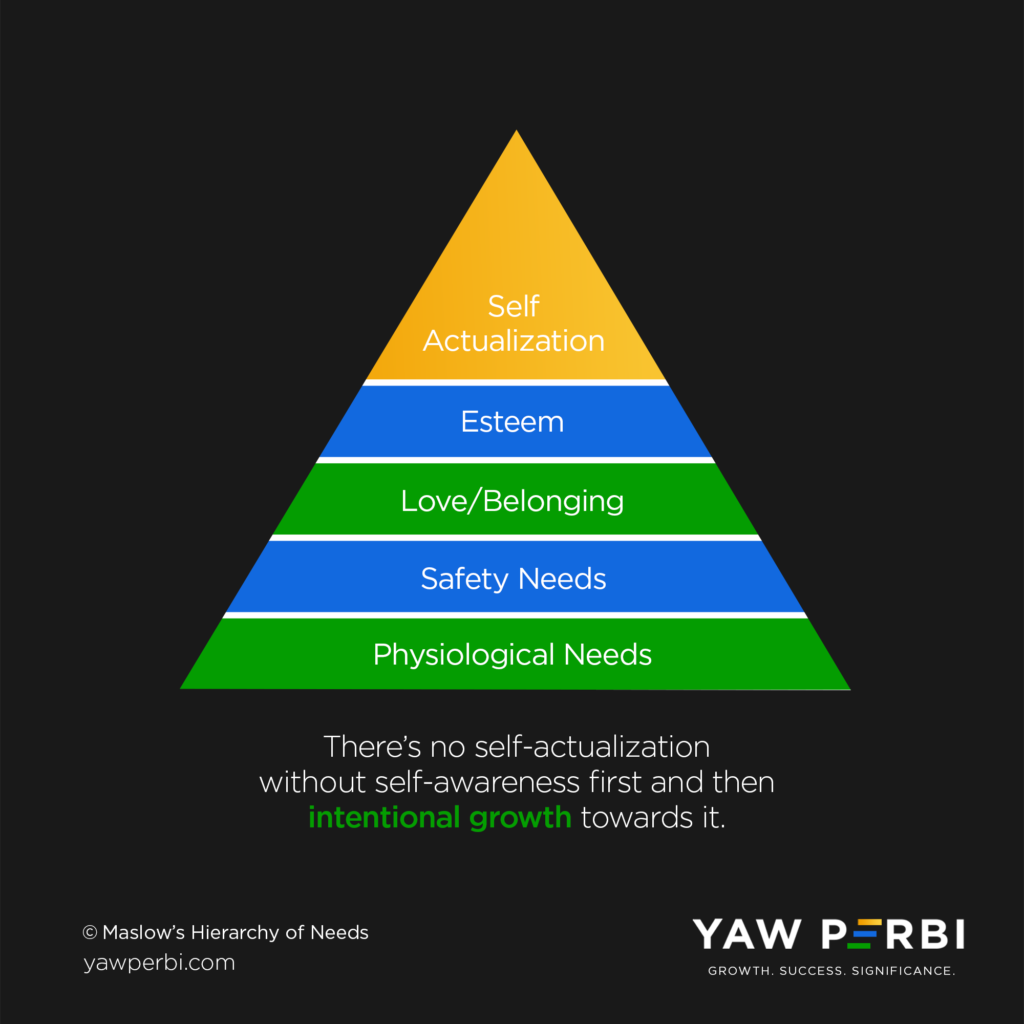
There’s often talk of the apex of Maslow’s pyramid (self-actualization) without the starting point (self-awareness)
Knowing who/where you are now (Law of Awareness) is as important as knowing who/where you want to be (Law of Vision). I hear a lot of talk about self-actualization and not nearly as much about self-awareness; yet we might as well forget about self-actualization without self-awareness first.
CONCLUSION
So when I hear people say “my principles,” I get what they mean, but really the only thing we own is our values and choices. We get to make choices but the consequences of those choices are already predetermined by the timeless, fundamental laws of the universe. The principles that govern life and success are not ours; they are ‘YUGE’ and not subject to our whims and caprices.
It is always a gift when after years of research people are able to capture in a single sentence or mathematical formula one of the laws of the universe–whether it’s Newton (motion), Einstein (relativity) or Maxwell (growth). And even more special when a series of these laws are captured in a single book, like the Bible.
Post Script
The 2021 cohort for the 15 Invaluable Laws of Growth mastermind is almost full. Are there only 15 Invaluable Laws of Success? Probably not. There might be a few more. But the thing is that there’s no going past these 15 to succeed. There will be ‘mirrors’ at our growth table in January (to get self-aware). Then we can measure the gap between who/where we are now and who/where we want to be and chart an intentional plan to close the gap and succeed.
Come to the table. Join the 15 Invaluable Laws of Growth January journey. Register now right here.
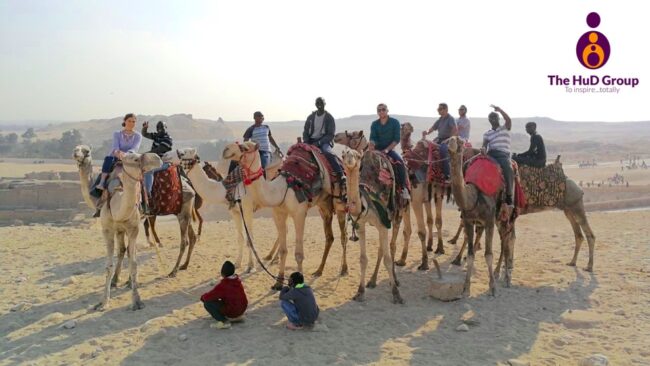
Two Things I Build Differently Now: Leaders and Wealth (Part 1 of 2)
When I was younger I was in a hurry to influence my world in two powerful ways: build leaders and create wealth. I’ve been working on both for the last two decades but now I’m going back to go forward. Here’s why. First, leaders.
WHO WE ARE FIRST
The year was 2003. I was still in medical school, in Accra, Ghana. After I cast vision to a group of eight others that would eventually become The HuD Group and go global, we hit the ground running. With all our Youth Power!, we were in such haste to “inspire and empower young people to discover their God-given purpose and reach their full potential” that we jumped some steps. I was barely 25. Of course, helping people find purpose is exciting, especially for emerging leaders, and everyone wants to have a raison d’être.
However, it wasn’t until my late thirties that it came to me in the strongest sense that something vital comes before purpose. Knowing who we are precedes knowing what we’re here for. Identity comes before purpose. In fact, until during my Master’s in Global Leadership (2016-2019), I wasn’t yet fully convinced that who we are is more important than what we do. But it is! Oh yes, who we are is more important than what we do, not just because we are human beings and not human doings (as is popularly said, tongue-in-cheek, these days) but significantly because who we are really determines what we do and how we do it!
A lot of water has gone under the bridge since those heady days at the dawn of this new millennium and the group has seen many successes, including expanding to two dozen countries on every inhabitable continent in the world! Yet at the same time, we’ve also experienced once-promising trained leaders (in vision, mission, values, strategy and leadership skills) mess up big time because they weren’t self-aware first: of their life narrative, personality, temperament, history/heritage, genogram, values, core beliefs & worldview, emotions (moods, passions etc.), shadows (‘false self’), giftedness, strengths & weaknesses, biases & blindspots, leadership & communication styles, preferences, motivations (extrinsic and intrinsic), habits & tendencies, limits/boundaries, their physicality etc. If you think this is a long list, you’re right. There is a lot of self-awareness, self compassion, self acceptance and self self to be done to not just self actualize but to lead others in a meaningful way.
A FRIEND TO THE RESCUE
My friend Carson Pue and I live on opposite sides of the second largest country on earth (Canada) but one thing often brings us together, in-person or online: leader development. When I came across his ‘Mentorship Matrix’ (diagram above) in his book Mentoring Leaders, I clearly saw pictorially where and how we had tripped. We were in a hurry to get to Step #3 (visioneering/discovering purpose) and hadn’t been spending enough time in Step #1 (self-discovery). And for Pue, as a faith-based leadership trainer, Step #1 consists of double knowledge of both self-discovery and God discovery. There actually is a lot that has been said and written on how we cannot know ourselves without knowing God (the creator in whose image we’ve been made) and vice versa. See here for more.
If we had spent enough time delving into what should be first and core, it would naturally reveal what should happen in Step #2, the emotional and other needs that need to be then satisfied (and how), as well as things one needs to be set free from before attempting to reach forward with discovering purpose and running with it.
I am not alone in this discovery. Increasingly in leadership development world there is this growing area addressing the psychodynamics of leadership, as we are more and more finding the best Ivy-league trained leaders in the top Fortune 500 spaces in the world doing really stupid stuff out of the blue! No one is above Steps #1 & 2. And if we don’t make the time to dig out and cement those foundations well, we are bound to produce shooting stars and not sustainable leadership for the long haul.
GOING BACK TO GO FORWARD
Now we’re back on the drawing board and relaying foundations to ensure that we start right and end well, beginning from the core of self-awareness and the dealing with anything that will entangle, choke or derail the leadership course further down the road. In my Twi language from Ghana there is a word and concept known as “Sankofa.” It literally translates as “go back and get it” and is symbolized by either a stylized heart shape or by a bird with its head turned backwards while its feet face forward carrying a precious egg in its mouth. My leadership development legs may have false-started from Step #3 with fleet feet facing forward but now my neck is turned with my head reaching back to Steps #1 and #2 to pick up that which was vital but I left behind. My ancestral language has a saying, that when you go back to pick up something valuable that you inadvertently left behind, it is no wrong, and well within reason and one’s rights. That is one of two things I build differently now.
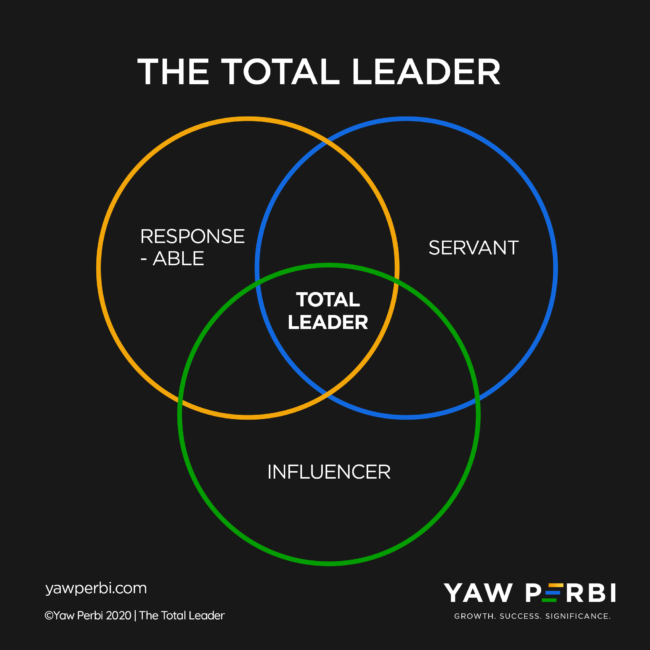
All these politicians are falling over themselves just to SERVE us?
I doubt it. I am skeptical that all these politicians are falling over themselves just to serve us, we the people. After a couple of decades of being a student of leadership, including a Masters in Global Leadership, I came to this simplicity at the far end of complexity that leadership is basically response-ability, service and influence. A total leader is and does all three. But even service has different degrees.
A few years ago some people were very cross with me after I mentioned on a live television interview on Good Evening Ghana that the then Ghanaian president wasn’t much of a leader (in terms of influence). He was very response-able, no doubt. I knew that quite well personally since we used to live in the same residential area and attended the same church. The honourable gentleman was a great servant as well–even as vice-president he was still volunteering to do such ‘menial’ tasks in the community. Such a role model in humility. But his charisma and ability to make things happen in and through others (influence) left much to be desired.
Of course there are those who are great public influencers but can’t even be response-able in their own marriage or toward their children. Such incomplete leaders are asked by the lawyer-turned-preacher, Paul, in the ancient texts, not to vie for leadership in the church. Here is the rhetorical question the trained lawyer poses: “for if someone does not know how to manage his own household, how will he care for God’s church?” A total leader is response-able, serves and influences. Now a focus on servanthood.
SERVANT-LEADER TAUTOLOGY
Ideally, the term ‘servant-leader’ should’ve been tautological as a leader necessarily must be one who serves. Unfortunately, more often than not, it isn’t so. Leadership is often anything but service. In fact, leadership is so much more synonymous with influence that when Robert Greenleaf introduced the term servant-leader around 1970 he literally mean servant-influencer. Here’s what he says in his The Servant as Leader essay back then:
The servant-leader is servant first. One wants to serve first; then one aspires to lead [influence]. This is sharply different from one who is leader [influencer] first, perhaps because of the need to assuage an unusual power drive or to acquire material possessions. A servant-leader focuses primarily on the growth and well-being of people and the communities to which they belong. The servant-leader shares power, puts the needs of others first, and helps people develop and perform as highly as possible.
THE MYSTERY OF MINISTERS
On a recent Lions Inspire Cubs hangout with children (7-14 years) to introduce them to leadership early, some of the cubs literally gasped when they heard me say that the ministers of state that throw their weight around are actually our servants. “Whaaat?!” Yes, minister is the same word as servant. Who could blame these children, for they have hardly seen as humble servants neither the ministers in politics nor ministers in pulpits. I often quip that if I ever became president of a nation I would change the term ‘ministers of state,’ in order to hear it afresh and for shock effect, to ‘servants of state.’
The last couple of months have been a heated political season on both sides of the Atlantic, particularly with my neighbours to the south (the United States border is barely 45 minutes from where I live in Montreal) and in my homeland Ghana. As I’ve seen the passion and commitment in the campaigning, counting of votes, recounting of votes, challenges in court etc. I can’t help but ask: All these politicians are falling over themselves just to SERVE us, we the people? Perhaps a very tiny fraction but largely no; it is mostly to serve their parochial interests. Even for those response-able influencers who are genuinely laying themselves down to minister to us as servant-leaders may I ask: what kind of servant will they be?
SERVANT? WHAT KIND?
Just as “love” is just “love” in English but has at least four variants in the Greek, the ancient Hebrew text is rich with a variety of words for “servant.” Four of these different hues of servant are Ehbed, Abad, Sakyir and Sharath. Let me explain.
1. LOVE SERVANT (Ehbed): This type of servant is totally sold out to those (s)he serves, not so much out of obligation and duty or for financial compensation but pure love. The Hebrews of old were not allowed to enslave their own. If any of their own people—Hebrew men or women—however sold themselves to someone (usually out of dire socioeconomic hardship) they were to serve their fellow Hebrew employer only for six years maximum. In the seventh year they must be let go free, liberally loaded with gifts of livestock, grain and wine. But there was a caveat: “…if your servant says to you, “I do not want to leave you,” because he loves you and your family and is well off with you, then take an awl and push it through his earlobe into the door, and he will become your servant for life (you may read the entire text here). The love servant is one at the complete disposal of the person(s) they serve out of love. Are you (or those you’re voting for) at the complete disposal of the people out of love?
2. SACRIFICIAL SERVANT (Abad): This one has given up a lot to serve. They are characterized by complete sacrifice. This is typically a servant who gives up personal rights, including inheritance, in order to work in the fields or tabernacle (see Numbers 18:7 and 23). The Levites of old were abads. As The Maxwell Leadership Bible puts it, “in a similar way, leaders must sacrifice their rights and stay surrendered to the cause.” Are you this kind of sacrificial servant-leader?
3. HIRED SERVANT (Sakyir): This is the quintessential ‘paid professional.’ In other words, a ‘hired hand.’ Irrespective of what they do, there is a clear understanding that they are hired per hour/day/week/whatever and will receive due compensation. Whether it is fair wages or not is not the object of this discussion; their service is paid for. Remember the love servant conversation above (under ehbed)? When a Hebrew sold themselves to work for another Hebrew they were to be treated as hired hands and then contract automatically ended after six years. It is after this they can choose to become a love servant (see Leviticus text). Unfortunately, the closest thing to a servant I see with many ministers of state and church alike is that of a ‘paid professional’. And you know corporate leaders are not there to serve either when they pay themselves fat salaries and juicy bonuses on the backs of suffering employees, even when their companies are struggling for survival! It’s the money and the trappings of the position that is the draw, not love (ehbed) or sacrifice (abad).
4. MENIAL SERVANT (Sharath): This is the down low of service. This is the most beautiful when done not because the servant-leader has no more nobler service to do but a choice to go down low for the sake of raising the people/mission up high. Sharath is the Hebrew word used to describe Joseph’s servanthood in prison (see here) and Joshua’s attendance to Moses as his aide (see Exodus text). A true leader must serve the people and the cause, irrespective of how down low the role may be. By the way, this same Sharath word in certain contexts can stand for worshipper.
MODELS: ANCIENT & MODERN
Politicians like Nelson Mandela are too few. I remember as a boy when he was released from prison in February 11, 1990 after 27 years! The whole town where I lived erupted with joy and the sound of cars honking was deafening. Mandela sure had influence–he was a leader. Of that day of freedom he said, “As I walked toward the prison gate and was among the crowd, I raised my right fist and there was a roar. I had not been able to do that for 27 years. It gave me a surge of strength and joy.”
But you know what else he had? The spirit of servanthood. That same evening when he spoke to a large crowd at the Grand Parade in Cape Town, he said, “I stand here before you not as a prophet but as a humble servant of you, the people. Your tireless and heroic sacrifices have made it possible for me to be here today. I therefore place the remaining years of my life in your hands.” I don’t know about you but I can’t help seeing an ebed, abad, sakyir and sharath all wrapped up in one in the man, his words and works–from prison to president.
The ultimate example of leader as servant is the greatest leader who ever lived, Jesus Christ. He called himself ‘Son of Man’ and did not just ‘talk servanthood’ but walked the talk. Anyone who could teach as he did and perform miracles and draw crowds of 15,000 some two millennia ago without social media sure had influence. It is he who called his followers who were jostling for political power, to sit at his right and left in their perceived imminent government of Jesus, and said to them:
“You know that those who are regarded as rulers of the Gentiles lord it over them, and their high officials exercise authority over them. Not so with you. Instead, whoever wants to become great among you must be your servant, and whoever wants to be first must be slave of all. For even the Son of Man did not come to be served, but to serve, and to give his life as a ransom for many” (Mark 10:42-45).
I can’t speak for leaders of other faith persuasions but for Christ-followers there is no choice but to love and live and lead like the ultimate servant-leader. Paul writes, “In your relationships with one another, have the same mindset as Christ Jesus.”
CONCLUSION
I initially wrote this piece with a holier-than-thou disposition thinking I was a reasonably good servant-leader myself only to get my bubble burst by my dear wife who gave me painful feedback that I needed to hear: “At home you are more like a boss-servant–a boss who tries to serve. You serve alright but only when you want and how you prefer to.” Ouch! I’m eating humble pie right now.
In the words of my mentor John C. Maxwell, “Leaders must never forget that God calls them to serve. If our Lord [Jesus] could wash His disciples’ feet as a sharath, then how could we frown at becoming an ebed?” So you too, take a long look at the list of four servant types above and a good look in the mirror: which kind of servant are you? Then linger awhile over the lengthy list of those longing for your vote and see whether they are preoccupied with status, salary and stuff or serving. True leaders serve their people towards their purpose; not their parochial interests. I am a recovering boss-servant.
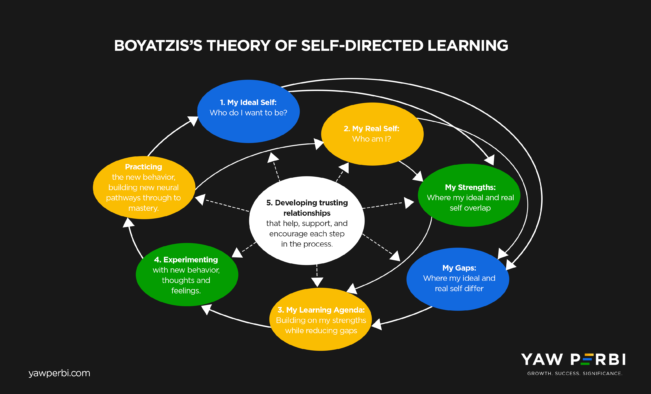
GET COACHED | How does it work?
“Your journey to leadership is likely to take many unexpected turns. Life is full of challenging situations, including ethical dilemmas, midcourse career changes or burnout, seemingly intractable interpersonal challenges, marriage and family issues, failures, and loneliness. At times, you may feel you are losing your way or have gotten off course from your True North. Getting back on track alone is very difficult, perhaps even impossible” (Bill George). That’s why you need a coach.
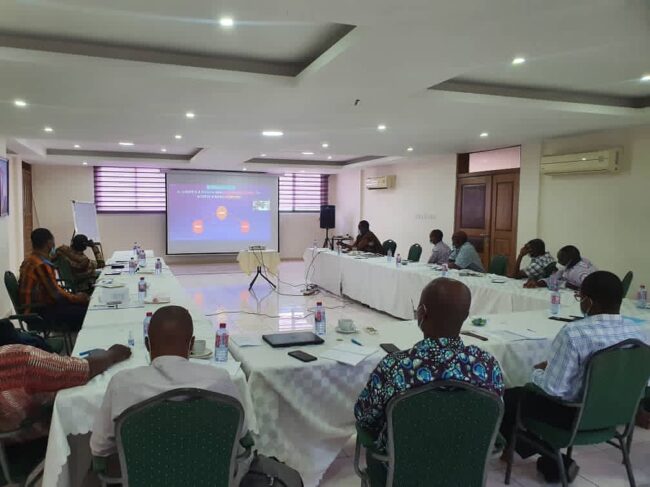
A group of Medical Superintendents in Ghana viewing a live YAW PERBI presentation on Emotional Intelligence via Zoom
If you’ve followed me on social media over the last few days you should’ve noticed a couple of posts about my excitement to train a group of Medical Superintendents in Ghana on Emotional Intelligence (EQ). Of course everybody needs (EQ) but one reason doctors in particular do is that they tend to think because they are smart and got into med school they would be successful in life and leadership. To our rude shock (and I say ‘our’ because I am a doctor myself), after a certain threshold, intelligence (IQ) doesn’t matter anymore, and what gives the winning edge to succeed is all EQ.
NO ONE CAN HELP THEMSELVES WITHOUT BEING HELPED
After an hour of training on what EQ is, five reasons why it’s key and how to acquire it, I left them with Boyatzis’s theory of self-directed learning. I first encountered this during my read of Primal Leadership, a book he co-authored with the chap who most popularized EQ from 1995 till date, Daniel Goleman. Boyatzis’s map (see below) begins with a hopeful “Who do I want to be?”, a picture of your ideal self. This existential question is at the very apex of Maslow’s hierarchy of needs (if you remember); it is a question of self-actualization. But the next question, which in my opinion really should be the first, is ‘Who am I?’, your real self.
Integrating those two questions reveals one’s strengths (where your ideal and real self overlap) and your gaps (where your ideal and real self differ). Your learning agenda or growth plan, therefore, basically involves building on your strengths while reducing your gaps. And so you begin: experimenting with new thoughts (head), feelings (heart) and behaviours (hands). Practicing your new behaviours actually results in building new neural pathways to success/mastery.
But here is the kicker: Central to all of these points, steps, and pathways is “DEVELOPING TRUSTING RELATIONSHIPS that help, support and encourage each step in the process.” Again, that’s where a professional coach comes in. Even in this so-called ‘self-directed’ learning, no man is an island and needs the vital trusted relationships to make their growth and goals happen.
COACHING MOMENT
Do you have someone that will tell you the truth and to whom you can tell the truth? Do you have the authentic relationships and customized resources to clarify your beliefs and values and understand vital personal and professional issues and receive honest feedback when you need it most?
A coach’s responsibility is to provide content, insight, tools, wisdom, framework, ideas, and feedback. YOUR responsibility is to move from awareness to action and accountability. Our coaching provides many structures for you to meet your individual and organizational goals.
For John Maxwell certified coaches like myself, whether it’s one-on-one executive coaching or one-on-few, we like to say that the objectives of coaching include, but are not limited to:
- Discovery of personal identity, emotional needs, purpose (vision & mission) and values
- Crafting of personal, professional and corporate Growth Plan
- Adding an objective and supportive third party to your leadership team
- Increasing accountability of your personal and professional goals
- Improving specific skills related to your role. Such as managerial skills, communication, conflict resolution, time management, productivity, and effectiveness
- Sharing best practices from other organizations that have done similar work
- Reviewing strategic business decisions related to operations, customer service, marketing, financials, and more
- Being a sounding board
- Preventing problems, thereby avoiding expensive, time consuming or embarrassing actions
- Supporting your growth past your limiting beliefs
- Conflict resolution
- Creating a team atmosphere
- Relationship development for success and significance.
COACHING OPTIONS (FOR C-LEVEL EXECUTIVES, OWNERS & GENERAL MANAGERS)
Coaching Categories: Depending on your goals and budget, at YAW PERBI we offer Green, Blue and Gold level coaching. Currently only Gold services are available, and they are limited.
Time & Place: All coaching programs require a minimum time investment of 6-12 months. Coaching is a marathon, rather than a sprint! Depending on whether Green, Blue or Gold level, the coaching package includes 2, 3 or 4 sessions a month lasting approximately 60-90 minutes. Sessions can be at your office, my place of business, or a mutually agreed upon location. In these days of COVID-19, online coaching is our mainstay via Zoom. Phone coaching is also an option but I prefer to see the individual to observe body language and such.
Special arrangements: Sometimes included in a gold package is two full days of shadowing, facilitation of a two meetings of your choice (up to 2 hours each), and unlimited phone calls and emails in between sessions. In addition, you or any of your employees will benefit from a 25% discount for any company training/workshops.
Other coaching services: Group Coaching, Sales Coaching, Couples Coaching, Business Partner Coaching, Youth Coaching, Relationship Coaching, Genogram Coaching and more (they include these but not limited to them).
Payment arrangements: These are to be made before services are provided, and as agreed upon via this website, mobile money, PayPal, cheques or bank transfers.
Miscellaneous: We will always be punctual. If you need to reschedule, 24 hours advance notice is required or one-half of the coaching session is lost. If for some reason I need to reschedule and do not do so with a 24-hour notice, you will be credited with an additional one-half coaching session, at no additional charge. Our coaching relationship is completely confidential. We will never share your identity or any information about you with any other person or organization without your expressed consent. In the unlikely event that there are concerns that need to be referred to another professional, I may be able to make that suggestion to you.
Completing our coaching relationship is a mutual decision. While my retention percentage is very high, there may come a time when you determine that it is time to complete our coaching relationship. If and when that time comes, I expect that the coachee will give me at least four weeks’ notice. That will give us time to summarize your growth/learning and strategize your next steps.
Our services are unconditionally guaranteed. If at any time you feel that you are not getting the support, honesty, coaching, or training that you expect, then you need to tell me.
LET’S GO!
If you are serious about growth, success and significance you need a coach. The proof of your commitment is your investment of quality time, best effort and substantial money. Even as a coach, I also have a paid coach. Everybody needs somebody to coach them. So! Make arrangements here and now for a 30-minute exploratory call to see if we would be a good match.
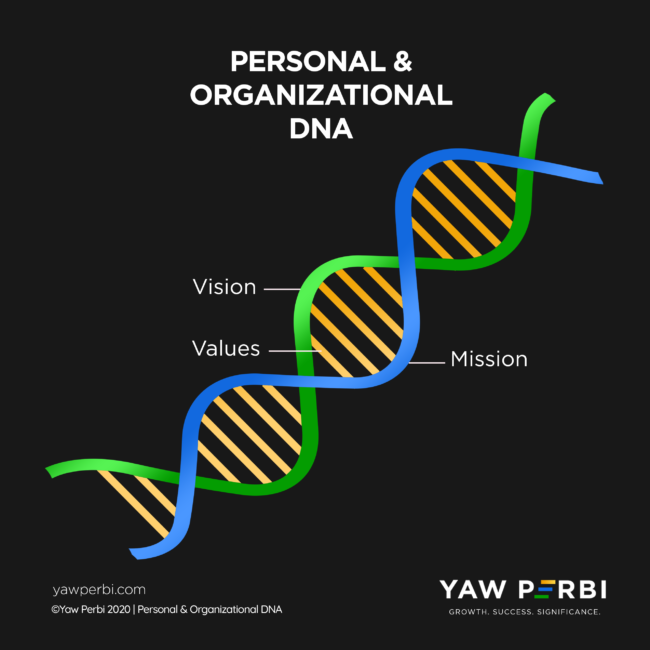
Personal and Corporate DNA: Vision, Mission and Values
Your vision, mission and values constitute your DNA, personal and corporate. Here’s why and how.

Vision, mission and values are really the life-giving and life-forming essence of persons and organizations
Whether one-on-one executive coaching or one-on-few, an exercise that energizes me most is getting into personal/corporate vision, mission and values. Once, I was invited to be a keynote speaker at an organization whose founder and CEO I greatly admire and respect. After the plane ride and having rested up, I got to their premises and looked round their impressive corporate building (no mortgage; all already paid for). I couldn’t help noticing the huge murals that spelt out the organization’s vision and mission. They were literally bill boards all over the walls trying to spell out why they existed and what they sort to accomplish.
Then I began to be concerned as what had been stated as their vision looked like what should be the mission and the mission was… well, let’s just say I was concerned. How was I to bring this up to the ‘big man’ without offending him too much, especially knowing how vital vision, mission and values are in giving life and forming persons and organizations? Without a deep and urgent intervention regarding the writings on the wall, I was afraid the writing was on the wall.
SOME CORPORATE SCIENCE
Permit the doctor in me to explain some fundamentals about DNA. DNA is the material that carries all the information about how a living thing will look and function. Each piece of information is carried on a different section of the DNA. These sections are called genes. DNA is short for deoxyribonucleic acid. It is in every cell of every living thing, even your fingernails! DNA is tiny but consequential; scientists need to use very powerful microscopes to see them. DNA has a complex structure but basically looks like a ladder that is twisted into a spiral. Each piece of DNA has two long strands (like the sides of a ladder). The two strands are joined together by chemical bases that form the rungs of the ladder.
Person and organizations are living things also. Vision, mission and values are the stuff that carry all the information about how they will look and function, survive and thrive. Vision and mission are akin to the two helical strands of DNA and values are the pieces that hold both sides together like the rungs of a ladder. This is the biochemistry of corporations.
Do you know that what determines how you look (eg. colour and texture of your hair, colour of your eyes and skin), how your lungs work, your blood type etc. are all determined by DNA? There are about 3 billion pairs of the chemical bases on the strands that connect with the other strand. The order in which the bases are arranged is very important. It forms a code that tells cells to make certain kinds of proteins. The differences in these proteins is what makes different living things—such as a plant, a panther, and two different people—different. You and I are different as persons, so are Unilever and Microsoft, or F.C. Barcelona and Manchester United, based on DNAs. Arsenal’s DNA codes for redness and Chelsea’s for blueness.
When DNA works correctly, it helps keep the body functioning properly. DNA helps cells to make proteins, which the cells need to live. DNA also allows living things to reproduce. The genes in DNA pass along physical traits from parents to children. Sometimes there are mistakes in DNA. These mistakes are called mutations. They can cause diseases and other problems.
INTERVENTION
Here are two disturbing observations I’ve made regarding vision, mission and values. One is the peer pressure of having them because just because ‘everyone else does’ and it’s in vogue. This pressure to look good because you have a mission statement on your office wall has gone even to the extent that people even look at those of companies or persons they admire and just blindly copy them as their own! Imagine my body copying your body’s DNA! The other disturbing observation is that people have no idea which is which (particularly vision and mission) and have them all over the place! If you need personal or corporate coaching to get this right, please do! This is vital. Vision, mission and values are really the life-giving, life-forming and life-replicating essence of persons and organizations.
VISION & MISSION
Vision is literally what we want to SEE. It is about Being. Think of it as a noun. Mission is what we want to DO to see what we want to see. It is about Doing. Think of it as a verb.
So for example, my vision for this executive education company YAW PERBI is to see a flourishing global ecosystem of authentic leaders characterized by healthy growth, holistic success and lasting significance. Consequently, our mission is to offer authentic and customized relationships and resources to C-level executives to grow personally, succeed professionally and become significant corporately.
Another family company that is into library services for children is known as Perbi Cubs. That company has a different DNA from YAW PERBI, though both entities bear the name Perbi and have some things in common. The DNA of Perbi Cubs is different because its vision, mission and values are different. The vision of Perbi Cubs is to see EVERY African family successful as a product of an enlightening culture of leisure reading. And what are they doing to see what they want to see a.k.a mission? To deliver an evidence-based, literacy-promoting endeavour to an engaged community of families hungry to know more so they can be more, do better and succeed.
Yet another family business, Trenor Coats & Gowns Ltd., has had a vision since its founding in 2009 to be a leader in the textiles care industry in West Africa. The mission is to provide customers with world-class textile care services driven by state-of-the-art facilities, trained and dedicated employees, and superior customer services.
By now you’ve had enough to chew on regarding the double DNA helix of vision and mission. I’ll save the rungs of the DNA, values, for a later blog.
AT THE END OF THE DAY
Individuals and organizations ought to make the time to clearly hone out their clear vision, passionate mission and compelling values. This is a fundamental function of leadership. The help of a coach or consultant is highly recommended. It must be done right. I strongly advise individuals to make sure that their personal DNA aligns with the corporate DNA of whatever organization they work for/with (or seek to work for/with). DNA is life. No DNA, no life; bad DNA, bad life–be it personal or corporate. Choose life!

I’m Serving Up: Here’s How.
Like leadership, there are umpteen definitions of culture. My favourite is the simplest. Culture, whether ethnic or corporate, is simply the way things are done here. How things are seen to be done at YAW PERBI is determined, like Apple or Android, by our unseen Operating System (OS). That OS or worldview feeds our beliefs, informs our values, which in turn determine our behaviour.
As we carry out our vision and mission, here are our 7 YP values and what they mean:
1. People. We value people: People come first; not stuff. People are the only creation that bear the imago Dei (image of God). That should mean something; everything.
a. We are aware that without people we are nothing.
b. We value relationships and foster community.
c. We grow people, clarifying their identity, giving them purpose, unearthing gifts, nourishing persons to flourish.
d. We pride in, promote and protect family.
e. We offer high care to our clientele, with a great deal of empathy.
f. Our exceptional client experience leaves them feeling wonderfully valued.
2. Growth. We value growth: We grow or die. There’s no middle way.
a. We invest in ourselves and invest in others’ growth; continually.
b. We are sworn to lifelong learning in a diverse community till we die.
c. We strive to be knowledgeable and enlightened in order to succeed.
d. We expect pain to be associated with grown and have made peace with the fact.
3. Particularity. We value particularity: One size doesn’t fit all. Each client is different and has a unique life story and makeup.
a. We see and treat each person reverently, as wonderfully made.
b. We invest in getting to know our clients’ life stories, identity, purpose, and SHAPE.
c. We honour the above (a & b) by customizing our offerings.
d. We provide tools to discover and affirm uniqueness of each client and match them to the appropriate relationships and resources.
e. We pride in and promote the prestige of the executive class.
4. Excellence. We value excellence: We go above and beyond.
a. We exceed expectations as a habit.
b. We work hard and play hard.
c. We take our word and commitments seriously.
d. We do not compromise on quality–it is a virtue.
e. We do anything that is worth doing, well.
5. Success. We value success: We are passionate about all-round prosperity.
a. We are committed to the progressive realization of worthy goals and ideals; our clients’ goals are ours.
b. We inspire and motivate ourselves and our clientele to see and seize their dreams.
c. We long for holistic success.
d. We are victory connoisseurs.
6. Authenticity. We value authenticity: No fake folks or fake news, no fake products or services.
a. We lead, coach, author, speak and train with integrity.
b. We are truthful about ourselves and our offerings.
c. We can be trusted.
d. Our ways and means are proven to produce desired results. What we promote works.
e. We are in public who we are in private.
f. We are holistic in thinking and living, in our being and doing.
g. We strive to live and lead such that those who know us and love us the best (family and friends) respect us the most.
7. Significance. We value significance: We live to ‘make a dent in the universe’.
a. We look outward, beyond ourselves.
b. We work towards things that benefit communities, nations and generations.
c. We are inspired by the thought that our best works will outlive us.
d. We bear in mind that only what is done for God’s glory by God’s grace will last.
WHAT’S COOKING & HOW WE’RE SERVING
So now, you don’t only know our menu–the vision and mission–you also know the manner in which we plan to dish it all out. I’m serving up. Take a seat.
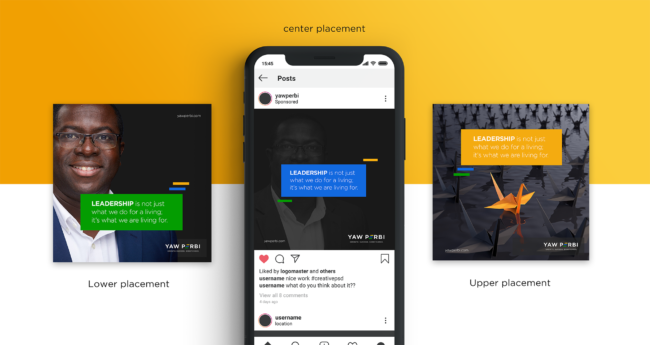
I’m Stepping Down
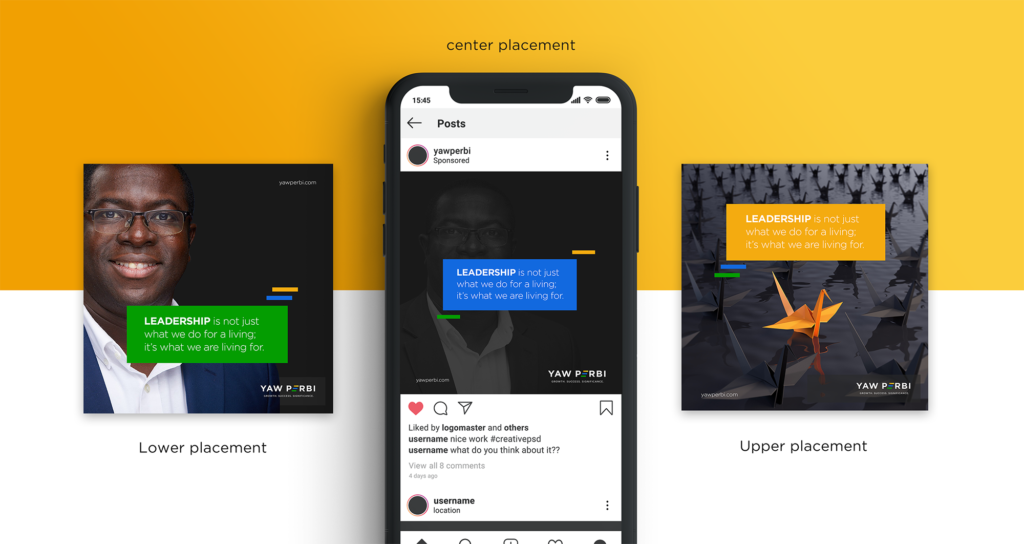
My brand is all about authentic leadership; leading well and helping others do so too. That’s my raison d’être.
So! This is a sequel to my previous I’m Coming Out blog. In that, I copiously explained how, “Prominent among the treasures of this pandemic cum sabbatical year has been the realization that it’s about time I did less of the work of leading corporations and charities and rather focus on raising world class leaders among C-level executives who will go on to lead many good things and many great people.” D.L. Moody once said, “It is better to train 10 men than do the work of 10 men. But it is harder.” He was right.
I am serious enough about this new direction that I’m stepping down as President of ISMCanada with effect from June 2021, Deo volente. When I agreed to this role in March 2013, and officially began in May of that year, my initial arrangement with the Board was a 3-5 year tenure. It’s been almost eight years now! I’ve done double duty. Among other things, I’m happy to have worked with an overhauled senior leadership team to steer the organization to become a Certified Best Christian Workplace, a flourishing organization.
In coming out and stepping down, I’m happy to catalyse, consult for and coach CEOs and other C-level executives in both the marketplace and ministry, as well as continue my speaking/training career which has taken me to some 45 countries of the world. As we launch the YAW PERBI brand, I would like to share our vision, mission, values, unique selling disposition and offerings with you.
VISION
At YAW PERBI, we want to see a flourishing global ecosystem of authentic leaders characterised by healthy growth, holistic success and lasting significance.
MISSION
Our mission, therefore, is to offer authentic and customized relationships and resources to C-level executives to grow personally, succeed professionally and become significant corporately.
YP VALUES
As we go about our vision and mission, our corporate behaviour will be based on the following seven things that are very important to us. We value:
- People
- Authenticity
- Particularity
- Excellence
- Growth
- Success
- Significance
In another blog I go into the fine details of what each value means and how they play out at our company.
UNIQUE SELLING PROPOSITION
We know there are a myriad leadership development and executive coaching companies out there. Our bold value proposition is authentically empowering C-level executives for exponential growth in 90 days, success within a year and significance for a lifetime (and beyond).
OFFERINGS
What exactly are we offering in terms of products and services? We like to say we LIFECAST, an acronym for providing Leadership, Integrity, Family and Entrepreneurship Coaching Authoring Speaking and Training. LIFE is our content focus and CAST comprises the vehicles for delivering the LIFE. By the way, apart from the ‘C’ standing mainly for executive Coaching, it also often involves Catalyzing and Consulting. Authoring encompasses soft and hard products from (e-)books to courses.
The YAW PERBI brand communicates prestige and authenticity, success and significance.
CONCLUSION | CLARITY, NOT CERTAINTY
Even in clearly laying out our vision, mission, values, unique selling proposition and offerings at YAW PERBI, this is not only introducing you to my new brand but inherently providing a lesson for executives, many of whom haven’t clearly laid these things out for the corporations, charities and churches they lead. Even in an uncertain year like 2020, as John Maxwell my mentor says, “Individuals can live without certainty from a leader, but not without clarity. …Your people do not need certainty on every issue; but they do need clarity on every issue.”
I’m out. I’m stepping down. I’ve told you why, when and how. Not everything is certain; but am I clear?

How to Eat an Elephant
“The world has entered an era of the most profound and challenging change in human history. Most of our children are not prepared, and we know it. Parents around the world see the change and know that the traditional three R’s–reading, writing, and arithmetic–are necessary; but not enough. Their children need to become far more responsible, creative, and tolerant of differences. They need to increase their ability to think for themselves, take initiative, get along with others, and solve problems. Business leaders are not finding people whose skills and character match the demands of today’s global economy, including strong communication, teamwork, analytical, technology, and organizational skills. They need young people who are self-motivated, creative, and have a strong work ethic. How will we bridge this ever-widening gap?” (Leader in Me blurb)
In my previous blog, I highlighted the current global leadership crisis epitomized by the likes of U.S. president Donald Trump. Yet even over a decade ago, leadership gurus like Stephen R. Covey (of The 7 Habits of Highly Effective People fame) uttered the above words, speaking of an era of challenge our children are unprepared for. The present leadership crisis has been brewing for a long time. If we do nothing about it, we’ll be setting our world back generations, and for generations to come. So how in the world are we going about it, growing leaders from childhood? I’m glad you asked.
THE ROLE OF LIT
Perbi Cubs Library Service through their book collection, activities and Lions Inspire Cubs programs inspire and empower children to be ready for leadership and impact. The Lions Inspire Cubs program has featured Lions (Leaders making impact in society) like Dr. Ahitey Trebi-Ollenu, a Robotics engineer at NASA.
The final element of this attempt at raising young, holistic leaders is the newly-launched Lions in Training (LIT) track which results in medallion awards for Cubs. As a firm, YAW PERBI is working with Perbi Cubs from the grassroots with children at home and in school. We consult for Perbi Cubs, providing the theoretical basis and praxiological framework, breaking down high level leadership concepts into small bits to deliver leadership development to 7-14 year-olds. After all as huge as it is, even an elephant can be eat. But how do you eat an elephant? Bit by bit.
ROLE OF PARENTS IN LIT
I have often said that, “Charity begins at home, so does leadership.” Parents are not only the primary caregivers of children but their primary leadership coaches as well. Of a truth, “the hand that rocks the cradle rules the world.” So together with parents, every quarter we focus on three core areas that when gotten right will have a significant change/impact in the lives and leadership of these Cubs. Every Thursday, parents receive an email to evaluate how the child did that week as leader. These three core areas of evaluation focus on various everyday practical actions and inactions of the Cubs at home and in school.
LEADERSHIP BADGE
So after digesting tonnes of leadership articles and books and studying global leadership even at the graduate level, I have come to the conclusion that although there are over 360 documented definitions of leadership, leadership is basically responsibility, service and influence. The easiest way for a child to understand a ‘big word’ like responsiblity is response-ability.
This diagram (above) may seem simple but it is one of those things referred to as simplicity at the far end of complexity. It looks deceptively simple but has come through after a lot of complex thinking processes.
ON YOUR MARKS…
So for this quarter, this is how the children are being observed, encouraged and evaluated as Leaders in Training (LIT) in practical terms:
A. Responsibility is response-ability:
- Cub chooses to do the right thing without prompting.
- Cub is able to take charge of getting their school work done.
- Cub does not blame others for their circumstances.
B. Service is being of use to others:
- Cub is helpful at home and school.
- Cub willingly does their chores.
- Cub does not boss other people around.
- Cub uses their talents/gifts to help others or make their lives better.
C. Influence is producing effects on others:
- Cub exerts positive peer pressure.
- Cub affects the actions, behavior or opinions of siblings and friends in a good way.
- Cub sounds convincing in expressing their opinion.
CUBS CAN EAT ELEPHANTS
“So how do you eat an elephant?” my father would ask our little selves when we were just waist-high and get us head-scratching. If such a complex phenomenon like photosynthesis can be taught at the PhD level but also broken down so simply and taught at nursery (pun intended), then leadership can too. So even lion cubs can eat elephants. How? Little by little, bit by bit, one bite at a time.
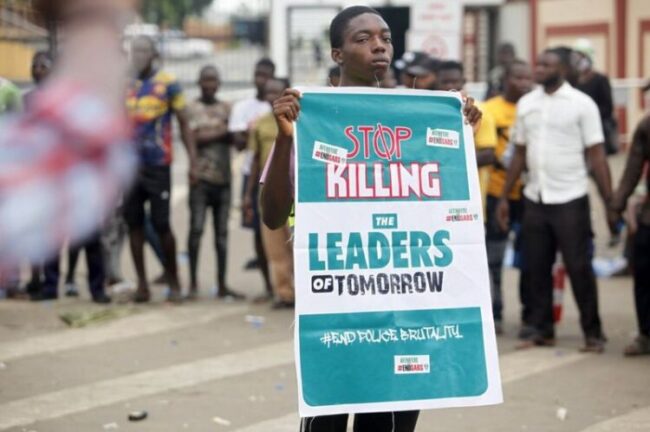
Youth Power!
Sixteen years ago I subtitled my ‘Youth Power!’ book, “unleashing the potential of the most powerful people on earth.” This pandemic year is giving us ample proof.

Nigerian youth at the #EndSARS protests. Youth are leaders of today; not just tomorrow. Photo credit: EPA
The recent George Floyd protests in the United States of America and around the world and current #EndSARS campaign in Nigeria against notorious police brutality have reignited my convictions about Youth Power!, well-documented in a 2004 book by that title. “This [#EndSARS] protest has been largely driven by young people,” I just heard from a CNN report.
YouthPower! is a revolutionary paradigm which seeks to start a fire in Young People for them to get their act together and do something significant with their lives…Now! For the last 16 years I have “been preoccupied with looking for evidence of Youth Power! all over the world and in all spheres of human endeavour since introducing that paradigm-shifting concept” in the mid 2,000s. Some other books that I have written to document such stories have included 15 Inspiring Young People and 15 Successful Global Businesses Young People Built, from Amazon to Time magazine.
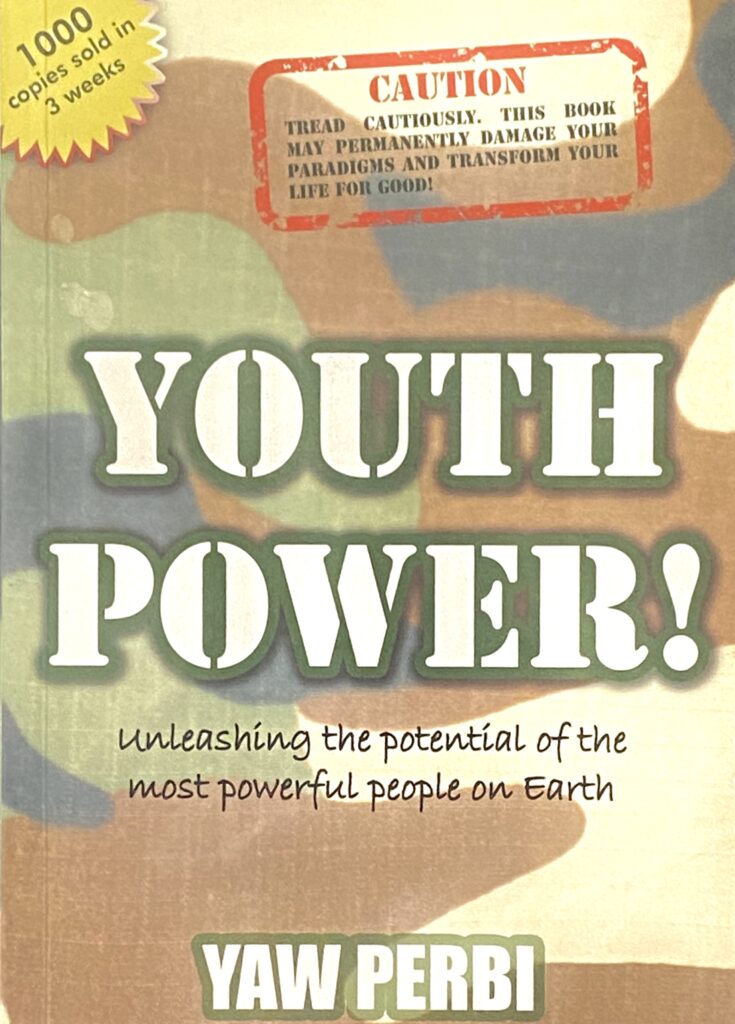
The 2004 publication YouthPower! had a foreword by Dr. Mensa Otabil
Young people have a lot going for them; youth have a lot of power! First, the numbers–there are more young people on earth than ever before in the history of the world! And that is power. But wait, there’s more. Young people have influence, the ability to control people and situations–even holding governments to ransom. That is power. Young people have incredible talents and special abilities which peak at this time of their lives. We have seen how they have utilized their tech savviness and power of mobilization to literally get the government of Nigeria to dissolve the said Special Anti-Robbery Squad (SARS) they’re protesting against on 11th October 2020. Shall we talk about the sheer passion, strength and energy of youth? Throughout the history of the world, young people have touched, shaped and shaken the world in politics, academics, business, sports, arts/entertainment etc.
More often than not, though, all this power is stored in the form of potential. The rest of the book Youth Power! is full of keys to unlocking all this power in terms of principles, the proto principle, purpose, planning, preparation, people, places, practices, pruning puny behaviours and ultimately how all of this results in pay.
YOUTH POWER! IN AFRICA
In 2005, the year after Youth Power! was published and widely distributed in Ghana, I was on a break in South Africa, after failing my final year medical school exams in Surgery. A pilgrimage to Soweto inspired me to write “a historical and tourist account of how Youth Power! that broke the back of apartheid in South Africa.” That sequel is entitled “Youth Power! in Soweto.” For the whole year I served as a doctor-captain with the United Nations Operations in Cote d’Ivoire, it was my joy and pleasure to walk scores of Ivorian Young People at the Université de Bouaké through the paradigm and practice of Youth Power! They even run a contest, translating the book into French.
Today’s protests remind me of the eternal words of one of the young student protestors back in apartheid South Africa in the late 1970s. You can see those words becoming flesh in today’s young protestors also, from Washington to Lagos:
“Our parents are prepared to suffer under the white man’s rule [or any form of injustice and brutality for that matter]. They have been living for years under here laws and they have become immune to them. But we strongly refuse to swallow an education [or whatever] that is designed to make us slaves in the country of our birth.”
As I participate in hash tagging, donating and encouraging the strong network of The HuD Group (publishers of the original Youth Power!) in Nigeria and around the continent of Africa to keep pressing for positive change, I look forward to adding to the thick annals of Youth Power!, yet another sequel: the contemporary history of Youth Power! in Nigeria.

